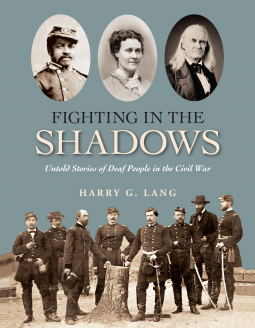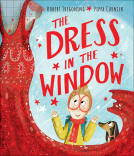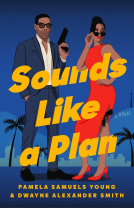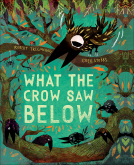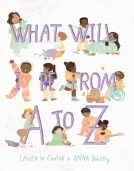Fighting in the Shadows
Untold Stories of Deaf People in the Civil War
by Harry G. Lang
You must sign in to see if this title is available for request. Sign In or Register Now
Send NetGalley books directly to your Kindle or Kindle app
1
To read on a Kindle or Kindle app, please add kindle@netgalley.com as an approved email address to receive files in your Amazon account. Click here for step-by-step instructions.
2
Also find your Kindle email address within your Amazon account, and enter it here.
Pub Date Jun 28 2017 | Archive Date Not set
Description
Lang pieces together hundreds of stories, accompanied by numerous historical images, to reveal a powerful new perspective on the Civil War. These soldiers and civilians were not “disabled” by their deafness. On the contrary, despite the marginalization and paternalism they experienced in society, they were able to apply their skills and knowledge to support the causes in which they ardently believed.
Fighting in the Shadows is a story of how deaf civilians and soldiers put aside personal concerns about deafness, in spite of the discrimination they faced daily, in order to pursue a cause larger than themselves. Yet their stories have remained in the shadows, leaving most Americans, hearing and deaf, largely unaware of the deaf people who made significant contributions to the events that changed the course of our nation’s history. This book provides new insights into Deaf history as well as into mainstream interpretations of the Civil War.
Advance Praise
The American Civil War has been viewed through countless lenses over the last 150-plus years. Lang’s view, through the diverse experiences of deaf men and women who lived it, is a revelation. The individual stories of those on both sides of the conflict, who stepped out of the acoustic shadows to stand up for their beliefs, inspire and raise awareness of the contributions of deaf people in our society.
—Ronald S. Coddington, editor and publisher of Military Images magazine and co-author of Faces of the Civil War Navies: An Album of Union and Confederate SailorsThe deaf experience, in its various manifestations, emerges from the silence in this engaging journey of mid-nineteenth-century America. Like an impressionist master, Lang deftly inserts deaf people into the grander narrative of American history and, in particular, the American Civil War.
—Octavian Robinson, Assistant Professor, American Sign Language and Deaf Studies, College of the Holy CrossHarry Lang's groundbreaking study shows that in an era with little inclination and few resources to accommodate them, deaf people during the Civil War displayed courage, ingenuity, and sacrifice. Fighting in the Shadows presents portraits of deaf patriots, soldiers, poets, and others determined to make a contribution to the outcome of the conflict. It also augments our understanding of the war's impact on civilians.
—Justin Carisio, author of A Quaker Officer in the Civil War: Henry Gawthrop of the 4th DelawareAvailable Editions
| EDITION | Other Format |
| ISBN | 9781563686801 |
| PRICE | $39.95 (USD) |
| PAGES | 272 |
Available on NetGalley
Featured Reviews
 Tabatha B, Librarian
Tabatha B, Librarian
I think this choice of subject matter is inspired. I have heard that many stories of the Deaf Community during this time period are more like a myth. The author has done substantial research and successfully brought the facts to paper in an in depth look at the Civil War and Deaf people.
 Reviewer 298993
Reviewer 298993
This was such an amazing and well researched book. I didn't even realize deaf soldiers were used in the civil war, so I really enjoyed learning more about it. This book has a good pace and is entertaining. I would recommend it. 4 out of 5 stars.
 Laura D, Reviewer
Laura D, Reviewer
A well researched book with very nice photographic additions. This is a topic not covered in traditional historical lessons. A different look at politics and common viewpoint through the years. It gives the reader much to consider and is a great stepping off point for further study or research.
 Jennifer S, Bookseller
Jennifer S, Bookseller
Confession time, this book took me seven months to read. It is densely packed with so much information, that I wanted to read it slowly so I would learn and retain more. It was my goal to finish it in the new year, so I did read it above all other books (I usually am in the middle of at least three or more books at a time.), which helped I think.
This book was amazing and incredibly well researched. So much information on a topic that I had never thought about before, to be honest. I learned so much! I didn't realize that so many leaders in the American Civil War were hard-of-hearing or deaf. Not to mention all of the men and women who were journalists, soldiers, nurses, spies and regular civilians trying to survive the war years.
While war is hell, it did bring about reform in some ways. The way prisoners of war were treated before and during the war was HORRIBLE. The book gives an example of how one Union soldier went into a Confederate prison as 173 pounds and left 78 pounds with scurvy and deafness caused by an exposure induced illness. This encouraged those appalled by prisoner treatment to move for reform.
Also, the war deafened a lot of soldiers and sailors and they were given very little in the way of recompense from the Government, much less than those who lost limbs or eyesight. All important, but the deaf were treated as less than. This sparked a push for equality and help for those who were deafened while in service of their country.
And this book made me start crushing on Lincoln. I knew he was pretty awesome already, but didn't realize how open-minded and equality driven he was. He wasn't just trying to free the slaves, which is huge, but he was also very open to assisting those who faced prejudice because they were deaf and considered "half a man" and foreigners who "may not even speak English".
The same day Lincoln signed the charter for a school for the deaf into college-level branches, was the same day the Senate passed the 13th Amendment to abolish slavery. There were a few in politics who said that they shouldn't waste money on educating the deaf because they were but "half a man" and they wouldn't be able to learn because of it. Lincoln obviously didn't believe that and made provisions so the deaf could have higher learning.
Lincoln wanted a German man by the name of Schimmelpfennig to be appointed to be leader in the military. Someone spoke up against the idea, saying this Schim, what's his name, might not be able to communicate with the men because he probably didn't speak English. Lincoln pronounced his name VERY CLEARLY and enunciated while banging his hand on a table and said that if he didn't speak English, then they would get men under him who would understand him. The man got the job.
So heart-eyes when I think of Lincoln now. : )
These are just a few of the gems from this book. I truly loved this book. I learned so much from it about something that I know isn't covered in school, at least when I was attending. I don't think American history is really looked at through the lens of those who are seen by society as "less than", even when they are quite obviously not less than anyone else. In fact, considering that those who were deaf were seen as "less than" and didn't have much in the way of assistance from the Government or other institutions, many did quite well and exceeded what would have been expected from a hearing person, let alone one who was deaf. Such an interesting and necessary book. It made me think and I believe it will make others think as well. And we can always use more of that in the world.
5, highly recommended I love Lincoln even more now, stars!
My thanks to NetGalley and Gallaudet University Press for an eARC copy of this book to read and review.
An amazing look into a severely underrepresented community’s history. As a historian who works primarily with Civil War era history and is hard of hearing, this book was lovely in so many ways and just an uplifting joy to read. I so hope to see more biographies of this ilk come to light because we need to know more about stories like these!
 Jan T, Reviewer
Jan T, Reviewer
historical-figures, historical-places-events, historical-research, history-and-culture, deafness, America
I think of it as a social history of the deaf in America from early days through the American Civil War including the restrictive attitudes of many hearing people. Even more, it is a testament to the individuals who fostered change as much as those who were oppressed because of an aspect of themselves which no one had any control over. Not just those profoundly deaf from birth, but those with acquired hearing loss from Illness (Scarlet Fever, Meningitis), or injury (blast concussive effect, noise of war). There is excellent research done and well documented and complete with assorted photographs. I think it's GREAT!
I requested and received a free PDF copy from Gallaudet University Press via NetGalley. Thank you!
 Reviewer 488582
Reviewer 488582
This was an interesting read and is written from an angle and perspective that I haven't seen in anything else. Seeking out tons of first-hand accounts of the deaf and their contributions to the war effort both on the front lines and behind the scenes.
This is truly remarkable and I'm sure there are countless other stories from throughout our nation's history that would fall into this same vein.
Well done, thanks for the informative and interesting read.
5 Stars!
 Michelle R, Reviewer
Michelle R, Reviewer
I enjoyed reading this book and I was not aware that deaf people were used during the Civil War. Definitely a part of history that needs to be talked and taught about more.
This would be a good read for someone who loves the intricate part of history. I reread several parts over for a better understanding.
I received a copy of this book from NetGalley and the publisher for my honest opinion and review.
Readers who liked this book also liked:
Pamela Samuels Young; Dwayne Alexander Smith
Multicultural Interest, Mystery & Thrillers, Romance
